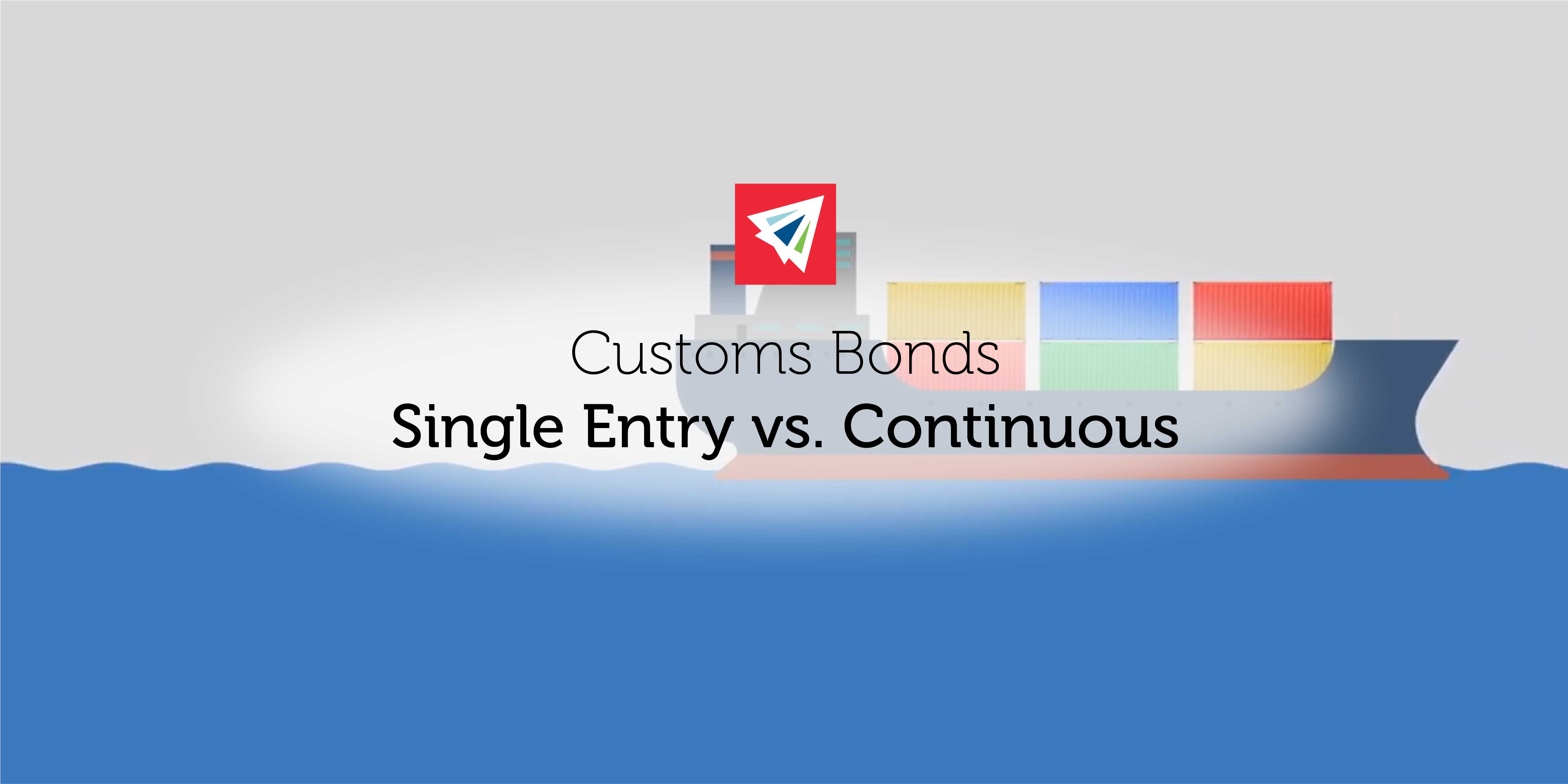If you are importing over $2,500 of goods into the United States, or a commodity that a federal agency regulates (firearms, explosives, food, plants, etc.), you are required to have a customs bond to serve as proof that all duties and taxes will be paid to the government. In most cases, companies will use a broker to issue a customs bond so they can clear their goods for entry.
Customs Bonds – Your Options
If you are importing to the U.S. and are looking for customs bonds, you have two options: single-entry customs bonds, or a continuous customs bonds.
Single-Entry Customs Bonds
Single-entry customs bonds, as implied by the name, are valid for one import. Depending on the monetary value of your imported goods, the single-entry bond will fluctuate in price. The most popular use of single-entry bonds are amongst businesses who import very infrequently, although depending on the commercial value of your cargo and how often you import to the U.S., using a new single-entry bond for each one of your shipments may save you money. Keep in mind that single-entry bonds are charged as a fixed dollar amount or percentage of the cargo you are importing (as opposed to a single, fixed price down-payment for bond purchase.) Take time to better understand which approach will be the most cost-effective method for you and your business, but most businesses who import frequently throughout the year are better off purchasing a continuous customs bond.
Continuous Customs Bonds
Continuous customs bonds (also known as annual bonds) are intended for companies who import multiple times throughout the year. Rather than purchasing a new bond every time you import goods, a continuous bond exists to make the importing process less tedious and less expensive (for those who import frequently throughout the year.) A continuous bond is purchased at a fixed price once annually and is valid for 365 days from the purchase date. After the bond expires, you will need to purchase another bond to continue importing into the United States (whether that means repurchasing single-entry bonds per shipment, or another continuous bond for the year.)
Making A Decision
Talking with your broker is the best way to decide which solution will be the most cost-effective for your business. Single-entry bonds are charged as a variable amount based on the value of your imported cargo, so depending on the overall value of your goods and how frequently you import, single-entry may end up being the best method of importing. However, if you are importing very frequently to the U.S., purchasing a new bond for every single shipment may get to be way to expensive. If imports to the U.S. play a large role in your company, purchasing a continuous bond every year will be cheaper and less time consuming than the alternative.
Our team at Interlog USA has helped tons of people decide which option is best for their company. If you would like to have a simple conversation about picking a customs bond, call us and we’d be happy to help you out!

4 thoughts on “Customs Bonds: Difference Between Single-Entry and Continuous”